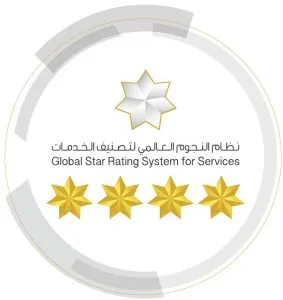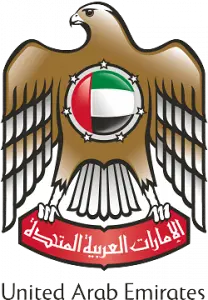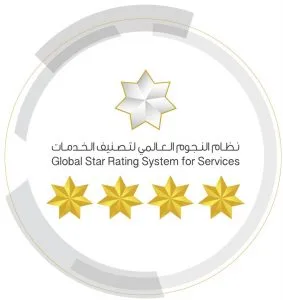No one can deny that our State has made human development its ultimate goal based on a clear vision, faith and persistence. In this context, there were many perspectives on leadership and the skills a leader in any organization should possess.
Although I am among the ones who believe that leadership skills can be learned and acquired and a person may develop his or her intrinsic skills in the right direction so that they can direct a group of people to achieve a certain goal, at the same time, I believe that influential leaders in any organization or department are rare either from a psychological or physical energy aspect. Difference and distinction between human beings is a natural law and the different skills among people are an order used by God to assign roles to people to balance the universe. Each person is created with certain capacities; if everyone became a leader, who will lead them then?
If you look around you to read people’s biographies and tendencies, you will find that true leadership may come to a person without their will or desire. It is not a coincidence but a big part of it was intrinsic. For example, you may find that this same person among his siblings in his small family is the center and is the consultant; his family members seek his advice in their affairs and in hard times and for decision-making; he is the one who takes initiative before being asked to do something; he is the one who is always concerned with others’ affairs; he reaches out to them with assistance without intervention; He is always ready to give without waiting to take.
Look around you and you will find that God each family has one such person whereas the rest of the family members enjoy being leaded by others and are very irritated if they are asked to make crucial decisions. Such persons with intrinsic characteristics are the ones who assume leadership in their organizations or the projects they run and the tasks they handle. They are usually successful in these roles as well.
There is no doubt that management differs from leadership. It is sufficient for a successful manager to carry out instructions accurately and diligently and is fully satisfied to do that. A manager can always be relied on in that. A leader carries a vision; he is risk-taking; he has a sense to see what others cannot see; he may foresee opportunities for success that others cannot foresee; he is also capable of making decisions that require calculated risk that others try to avoid.
Although leaders are human who are correct and make mistakes, but their regret is positive and not negative. Positive regret occurs when an individual makes a decision that might be wrong. Negative regret is regretting not taking a certain decision or leaving behind an opportunity for success without making use of it. There is a huge difference between the two types of regret.
Hence, a leader is the one who has enough courage to bear the responsibility for making crucial decisions that may affect that future of the organization in case they fail and may form an unprecedented transition and advancement if they fail. Many people try to avoid that preferring safety and fearing the future and satisfied with their current state. Calculated risk is an integral part of a leader’s character.
The true leader of any institution is always on the hunt for the challenge to achieve goals that others may find as impossible or even beyond what has ever been imagined, whereas he sees them as possible and achievable. He is not satisfied with only achieving the goal, but he seeks to achieve goals with much distinction.
In my opinion, a leader does not talk much about his previous achievements only, but once he finishes reaching a goal or a milestone, he aspires to achieve more. He lives in an ongoing battle of success, in which he does not assess himself and his achievements in comparison with other surrounding institutions but primarily on a scale of challenging himself.
The true leader is certain that people who work with him, and not for him, have momentums that need to be let out if he can use the keys to their characters well. He is also certain that each task assigned to any of his surrounding individuals is a valuable task, however simple it might be and that individuals regardless of their professional levels, have ideas that should be appreciated and benefitted from.
Hence, a leader listens more than he talks and does not talk except after listening to all points of view without discrimination. He prioritizes the interest of the organization before favoring a particular opinion. He does not take decisions before consulting those around him and his decisions are not necessarily a choice from alternatives placed before him. His decisions might be contrary to suggested alternatives as long as they are supported by logic and reasoning. At the same time, he has the courage to back out of a decision he made that does not carry an interest or will lead to unfavorable results for the organization.
The true leader has the courage to apologize if he makes a mistake. He is human after all. Admitting a mistake is one of the major elements of success. It is the wall of trust that rises day after day between him and his team.
The true leader’s relationship with his employees is not restricted to the work environment with its orders and prohibitions and Dos and Don’ts. He realizes that his employees are human beings who can also be happy and sad; hence, he is keen on sharing their happiness and grief. Emotions are always present in his interactions with others.
The true leader of any organization is approachable and realizes that a genuine part of his duties is the making of qualifies leaders to bear responsibility after him so that the journey of success may continue.
Despite all that, I stress once again that leadership skills can be acquired and learned by gaining experience. These leadership skills are not impossible to acquire and many of us can do it, but only few of us can reach creativity.
Dean of Faculty of Information, Mass Communication and Humanities – Ajman University of Science and Technology
Note: The article in published in Al Bayan newspaper



